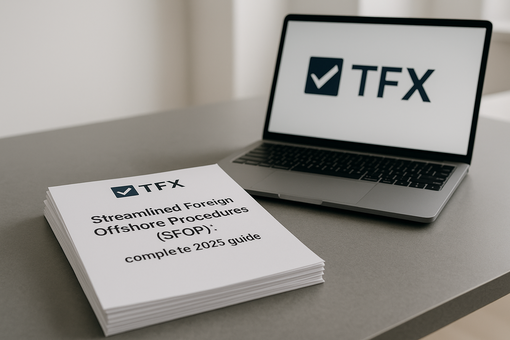Retire in Costa Rica: the ultimate guide for US citizens

Looking for a peaceful and affordable place to spend your golden years? More than 120,000 US citizens have chosen to retire in Costa Rica, drawn by its laidback lifestyle, vibrant expat communities, and lush tropical surroundings.
Once marketed as the world’s premier overseas retirement haven, Costa Rica still captivates North American retirees with its mix of adventure, community, and simplicity. In this guide, you’ll discover exactly how to turn that dream into your next chapter – from residency options and healthcare to tax perks and the true cost of living.
Dreaming of Costa Rica?
Thinking of retiring in Costa Rica? Here’s why this tropical haven keeps winning expat hearts:
- Breathtaking nature: From the black sand beaches of Playa Hermosa to the majestic Arenal Volcano, Costa Rica offers over 30 national parks and countless postcard-worthy landscapes.
- Warm, welcoming culture: Ticos are known for their pura vida spirit, and cities like Grecia and Atenas are home to thriving US expat communities that make newcomers feel at home.
- Peaceful and safe: As one of Latin America’s most stable democracies with no standing army since 1949, Costa Rica consistently ranks as one of the safest countries in the region.
- Top-notch care: The Costa Rican universal healthcare system (Caja) typically costs retirees 7–11% of reported income, with private clinics in cities like San José offering world-class care at significantly lower prices than in the US.
Costa Rica’s cost edge – how it stacks up
Costa Rica offers a striking cost advantage for United States retirees – living expenses across key categories are significantly more affordable, allowing expats to stretch their retirement income further without compromising lifestyle.
| Expense category | Costa Rica | United States | Which is cheaper? |
|---|---|---|---|
| Housing (rent) | $500/month | $1,132/month | Costa Rica – 55.8% lower |
| Utilities | $100/month | $200/month | Costa Rica – 50% lower |
| Groceries | $470/month | $600/month | Costa Rica – 21.7% lower |
| Transportation | $70/month | $150/month | Costa Rica – 53.3% lower |
Compared to the United States overall, Costa Rica’s total cost of living is 33.9% lower when rent is included, and 23.0% lower without rent. Also, looking closer at Costa Rica’s most popular expat areas reveal key differences in affordability:
→ San José vs Guanacaste: Guanacaste’s rent is 54.8% lower than San José, offering better value for beach-loving expats.
→ Puerto Viejo vs Tamarindo: Puerto Viejo’s overall cost is 31.3% lower, making it more wallet-friendly despite Tamarindo’s tourist appeal.
→ Ojochal vs Tamarindo: Ojochal’s groceries and rent average 26.5% less than Tamarindo, offering a quieter, more affordable lifestyle.
Puerto Viejo thus stands out as Costa Rica’s best-value city for retirees – expect monthly living costs of $1,500 for singles and $2,400 for couples.
(Cost of living data sourced from Numbeo.)
Where to retire in Costa Rica
San Jose
With over 340,000 residents, San Jose draws American retirees seeking top-tier healthcare and city life. It's a hub for those in Costa Rica’s retirement program, offering access to embassies and modern amenities. The expat community is active and well-supported. Crime is moderate – avoid isolated areas after dark.
Guanacaste
This sunny province is a hotspot for American expats who retire in Costa Rica for beaches and nature. Popular towns like Tamarindo offer safety and strong social scenes. The lifestyle is laid-back yet connected. Petty theft happens in tourist zones but overall safety is solid.
Ojochal
Ojochal is a peaceful village loved by Canadian and American retirees alike. It’s known for gourmet dining, low crime, and scenic living. The population is small, but the expat network is strong. Ideal for those seeking serenity and cultural charm.
Puerto Viejo
Puerto Viejo offers a tropical, Caribbean vibe with growing appeal. It’s home to adventurous Canadian expats and a vibrant local culture. Residential areas are calm, while nightlife spots are best enjoyed with care. Great for those who want flavor, not flash.
Residency paths for US retirees in Costa Rica
Costa Rica offers two retirement-friendly residency programs that make it easy for US citizens to settle in a warm, welcoming region.
-
Pensionado visa
Perfect for retirees with steady income, this visa requires at least $1,000 per month from a pension, social security, or annuity. Funds must be transferred into a Costa Rican bank, and the visa includes access to public healthcare and potential for permanent residency. It’s the easiest and most affordable path for traditional retirees. -
Rentista visa
Ideal for early retirees or those with investment income, the Rentista Visa demands proof of $2,500 monthly income or a $60,000 bank deposit. Income must be passive like rental income or dividends, and transferred to a local account. It allows renewals and can lead to permanent residency.
Other options include:
- Inversionista visa: $150,000 investment in real estate or a business, often used by retirees diversifying assets while including spouses and dependents.
- Digital nomad visa: $3,000 monthly income for location-independent retirees who want to explore Costa Rica with their family for a year.
Step-by-step application
- Gather required documents – passport, birth certificate, proof of income, background check, and any documents for dependents.
- Translate and apostille all documents into Spanish.
- Submit your application to the Costa Rican consulate (US) or local Immigration Office (Costa Rica).
- Pay all associated fees, including application and document authentication costs.
- Complete fingerprinting and register with your local consulate.
- Wait for approval while continuing to meet income requirements and maintaining document validity.

Taxes in Costa Rica: what US retirees need to know
Costa Rica operates under a territorial tax system, meaning only income earned within the country is subject to taxation. This approach makes it especially attractive for US retirees living on Social Security, pensions, or investment income from abroad. For many expats who choose to retire in Costa Rica, this system can mean a significantly reduced tax burden compared to other destinations.
Income earned outside Costa Rica is not taxed
- US Social Security benefits, IRAs, and 401(k) withdrawals are not taxed by the Costa Rican government.
- Foreign rental income, capital gains, or dividends from the US remain tax-free in Costa Rica.
- This exemption makes Costa Rica highly favorable for retirees with offshore income streams.
Comparison of local taxes in Costa Rica vs the US
| Tax type | Costa Rica | United States |
|---|---|---|
| Income tax | Only Costa Rican-sourced income is taxed. Progressive rates: 0%–25%. |
Global income taxed. Rates vary by income bracket; federal ranges: 10%–37%. |
| Social security tax | Not taxed by Costa Rica. | Subject to tax; up to 85% of benefits may be taxable depending on total income. |
| Property tax | 0.25% of declared value annually. | Local rates vary widely; typically 1%–2% depending on the state and municipality. |
| Capital gains | 15% for local gains; foreign gains not taxed. | Long-term capital gains taxed at 0%, 15%, or 20% federally, plus possible state tax. |
| Luxury home tax | 0.25%–0.55% on homes over $250,000 (USD equivalent). | No federal luxury home tax; local mansion taxes may apply in select states. |
US citizens – tax reporting doesn't stop at the border
Even if you retire in Costa Rica, your US tax obligations remain. As an American citizen or green card holder, you must file a federal return each year using Form 1040, reporting all worldwide income – including Social Security, pensions, and retirement distributions. If you earn income abroad, you may qualify to exclude up to $130,000 using Form 2555, or reduce double taxation through credits with Form 1116.
Additionally, foreign financial reporting rules apply. You must file an FBAR (FinCEN Form 114) if the combined balance of your foreign accounts exceeds $10,000 at any time during the year. If your specified foreign financial assets exceed $200,000 at year-end – or $300,000 at any point – you must also submit Form 8938 under FATCA. Filing the correct forms ensures compliance with IRS regulations and protects your financial peace of mind while living abroad.
NOTE! US expats must file by June 15 (June 16 in 2025). Taxes are due by April 15 to avoid interest – even if you file later. You can extend until October 15 with Form 4868, but any taxes owed are still due in April. Need more time? Request our free expat tax extension service.
Real estate – housing options & costs
If you're thinking about settling in Costa Rica, renting is often the way to go. You can find a cozy one-bedroom for around $662/month in the city – or about $466 if you head outside the hustle.
Need more space? A three-bedroom apartment runs $900–$1,497, depending on location and style. While buying is less common, homes range from $75,000–$300,000 – but with mortgage rates near 10.5%, it's something we need to budget for carefully.
Healthcare in Costa Rica: what retirees need
Retiring in Costa Rica means you gain access to universal healthcare through Caja – the national system that covers 90–100% of your costs after you pay just 9–11% of your monthly income. If you're a retiree with legal residency, you're fully in.
- You’ll notice public care is affordable and comprehensive – but expect slower service, with wait times and staff responsiveness rated moderate to low. That’s why many expats pair Caja with private coverage.
- Private hospitals here are top-tier – with modern equipment, short wait times and English-speaking staff, it's easy to feel at home. Costa Rica’s private care ranks high for quality and convenience – especially appealing for Canadian and American retirees.
- You can choose between government-backed private insurance like INS – starting at $60–$250/month – or international plans like Allianz or Cigna, which range from $100–$1,000/month. These often cover extras like dental, vision and faster diagnostics.
- The best part – You save big compared to US costs while receiving world-class care. For those living on Social Security, the healthcare value in your area of Costa Rica can be life-changing.
Real talk: what to expect & how to adapt
| Challenge | What expats learned (the fun way) |
|---|---|
| Cultural adjustments | Learn some Spanish – even if your accent’s awful, locals appreciate the effort and the laughs. |
| Bureaucracy & infrastructure | Bring patience... and snacks. A “mañana (in due time)” mindset helps when paperwork takes forever. |
| Rainy season & humidity | Morning walks, afternoon Netflix. And yes – you’ll become best friends with your dehumidifier. |
| Security concerns | Secure your home, stay aware, and avoid remote areas after dark. |
These tips come straight from US and Canadian retirees who shared their real struggles – and wins – on social media. So if you ever feel alone, just know you’re definitely not.

Is Costa Rica your retirement fit?
Costa Rica offers stunning nature, affordable healthcare, and a relaxed lifestyle – but it’s not without its quirks. If you’re ready for a slower pace, some cultural learning curves, and big savings on medical costs, it could be your paradise.
At Taxes for Expats, we help you stay IRS-compliant, avoid costly tax mistakes, and make the most of your US benefits – so you can retire in Costa Rica with total peace of mind.
FAQ
Opening a bank account can be complex, often requiring proof of income, legal residency status, and extensive documentation to comply with anti-money laundering regulations.
Retiring in Costa Rica can be rewarding for families, but considerations include the cost of private education and adapting to a new culture.
You can legally retire in Costa Rica as a US citizen and own property outright, including land, with the same rights as Costa Rican citizens.
Yes, you can bring your pet, provided you follow USDA export rules and Costa Rica’s vaccination and import documentation requirements.







